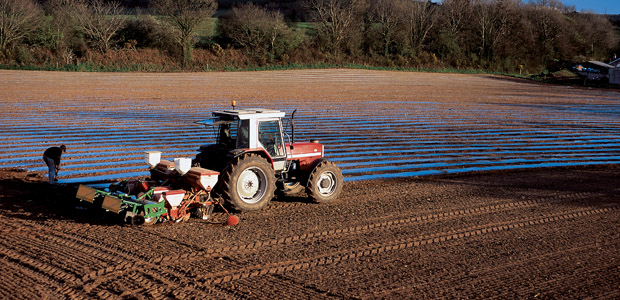Advertisement
Dumping Engineered Seeds
Genetically engineering food crops has resulted in unprecedented protest around the world, from both consumers of the foods and members of the scientific community. Many scientists are concerned that the introduction of foreign organisms into the DNA of a plant family can have disastrous results. Once a newly engineered variety is unleashed into the environment … Continued

Genetically engineering food crops has resulted in unprecedented protest around the world, from both consumers of the foods and members of the scientific community. Many scientists are concerned that the introduction of foreign organisms into the DNA of a plant family can have disastrous results. Once a newly engineered variety is unleashed into the environment it can never be recalled. And accidents happen on a regular basis. In Australia, one of these was the “dumping” of truckloads of genetically engineered (GE) canola plants that had not been approved for public release.
Australia is the world’s second largest exporter of canola. Right now producers of canola are growing only conventional crops and government must make a decision about growing GE products. A German/French conglomerate, Aventis SA, has a trial crop site for GE foods west of Melbourne. It was recently confirmed that its GE canola material was discovered in a truck and the plants dumped in a public place. Aventis said the dump would have been covered with soil within 24 hours. Despite the negative publicity, an Aventis spokesman said it will continue plans to introduce commercial GE canola in Australia in 2002. Reports of a black market in genetically modified canola seeds are also causing alarm throughout the country.
Monsanto, Dupont and other makers of genetically altered seeds maintain GE crops are no different than crops produced from traditional breeding. The US Federal Drug Administration adopted rules in 1992 that recognized biofoods as comparable to traditional foods: labels are only required if an allergen is introduced. Since then, half of all soy crops have been engineered to produce a toxin to kill pests and many other GE foods are on the market, unlabelled, in both Canada and the US.
The United Nations food agency, the Food and Agriculture Organization, approves bio-engineered food “to help feed poor nations” but says each altered food must be analyzed on a case-by-case basis before releasing to the market. Codex Alimentarius, another UN group, recently began a three-year effort to set international standards for biofoods. There has been outcry from many nations because such standards would supersede a country’s national regulations.
Australia’s dilemma is deepening. The farm export sector is weighing the productivity gains expected from genetic engineering against consumer rejection, especially from European buyers.
Manitoba Co-operator, March 3, 2000





